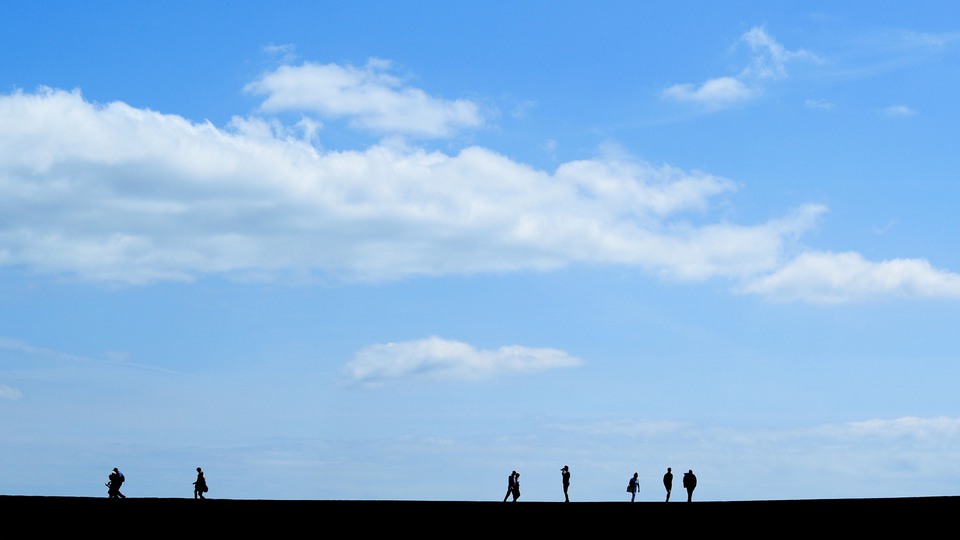
Meeting on air pollution brings scientists and negotiators together from around the world
Air pollution is the greatest environmental risk to human health. From March 13, 200 experts, scientists, and negotiators from around the world will meet in Gothenburg to strengthen international efforts to improve air quality. Organised under the framework of the Swedish EU Presidency, the seventh meeting of the Saltsjöbaden Air Science and Policy Workshop will be themed around “Air pollution management in a world under pressure”.
“What makes this meeting special is that it is a free forum with informal discussions between countries. It is a meeting that sets the agenda for international air quality work," says Peringe Grennfelt, researcher and organiser at IVL Swedish Environmental Research Institute.
Sweden has one of the lowest levels of air pollution in Europe, and the long-term trend shows continual improvement. At the same time, new research shows that even low levels of air pollution affect our health, and the World Health Organisation (WHO) has therefore tightened its guidelines even further.
“Although there are signs of progress, air pollution is still one of the biggest global environmental threats, causing over seven million premature deaths each year. And the more we study the health effects, the more we find. Air pollutants, and especially small particles, are linked to low birth weight, depression, cardiovascular disease, and a wide range of environmental effects,” says Anna Engleryd, senior officer at the Swedish Environmental Protection Agency and former chair of the UN Air Convention.
Air pollution also has an impact on the climate, for example soot particles causing the ice in the Arctic to melt. Emissions of ammonia and nitrogen oxides drive eutrophication, which hits biodiversity hard, especially in areas that are naturally nutrient poor.
“We need to do much more to reduce these effects, both through international cooperation and locally and individually. A major continuing concern is wood burning in households, both for the climate and for human health,” says Peringe Grennfelt.
Participants attending Saltsjöbaden VII will include representatives from WHO, UNEP and the UN Air Convention CLRTAP, and some 40 countries from Europe, North America, South America, Asia, and Africa.
Issues that the meeting will address include:
- How can we engage more countries and regions in reducing air pollution emissions?
- How can we communicate the health impacts of air pollution to accelerate action?
- How will future emissions be affected by population growth, what we eat and how we move and travel ?
- Will urban air improve with more electric cars, or is it the other way around?
Following Saltsjöbaden VII, the Forum for International Cooperation on Air Pollution (FICAP) will hold its first meeting on Thursday 16th March in Gothenburg. Co-organised by the Swedish Environmental Protection Agency and the UK Government, the Forum meeting will provide an engaging and interactive platform for international air quality experts, government officials and NGOs to share mutual learning and technical expertise across regions. It follows the inaugural meeting of the FICAP Task Force in Bristol, England in October last year. The Task Force met to set out a programme for the first official meeting of the Forum, set to be held in Gothenburg this week.
The Forum meeting will be comprised of two panel-led discussions with representation across Africa, Asia, Europe and Latin America. Points of discussion will include ‘Pathways to policy action in a regional context’ and ‘Actions for improving air quality, considering both climate change and economic development trade-offs’.
Saltsjöbaden Air Science and Policy Workshop + FICAP
- The very first meeting was first held in 2000 in Saltsjöbaden in the outskirts of Stockholm and has since kept its name, though recent meetings have been held in Gothenburg.
- The meeting will last for four days and is hosted by the Swedish Environmental Protection Agency, the Government Offices of Sweden, the Nordic Council of Ministers, the City of Gothenburg, FICAP and IVL Swedish Environmental Research Institute.
- This year's meeting will be the seventh and is organised under the theme "Air pollution management in a world under pressure".
For more information, please contact:
Peringe Grennfelt, peringe.grennfelt@ivl.se, phone: +46 (0)10-788 67 84
Anna Engleryd, anna.engleryd@naturvårdsverket.se, phone. +46 (0)10-698 10 60

